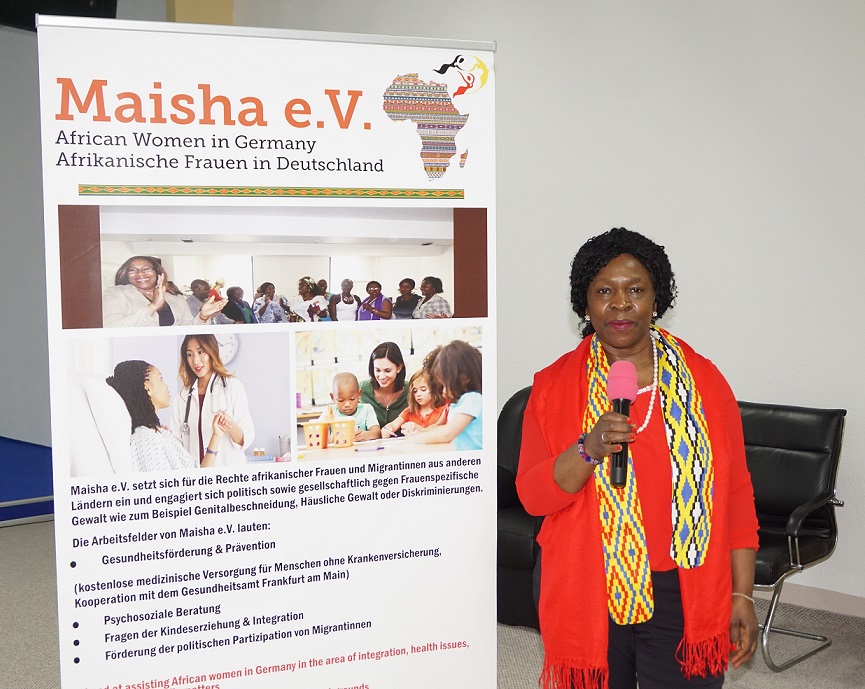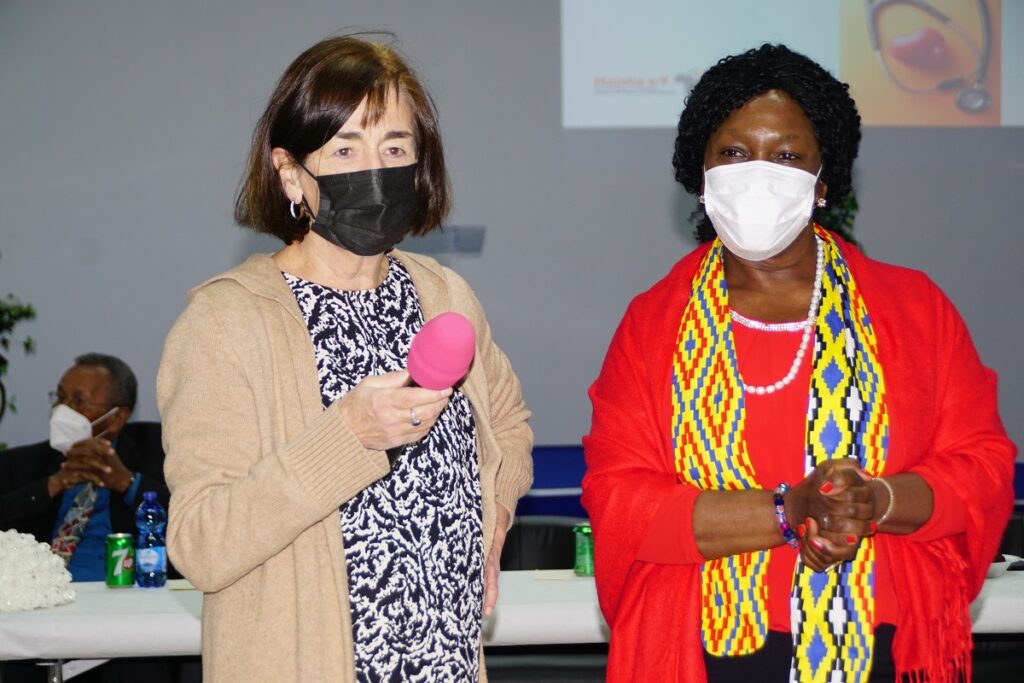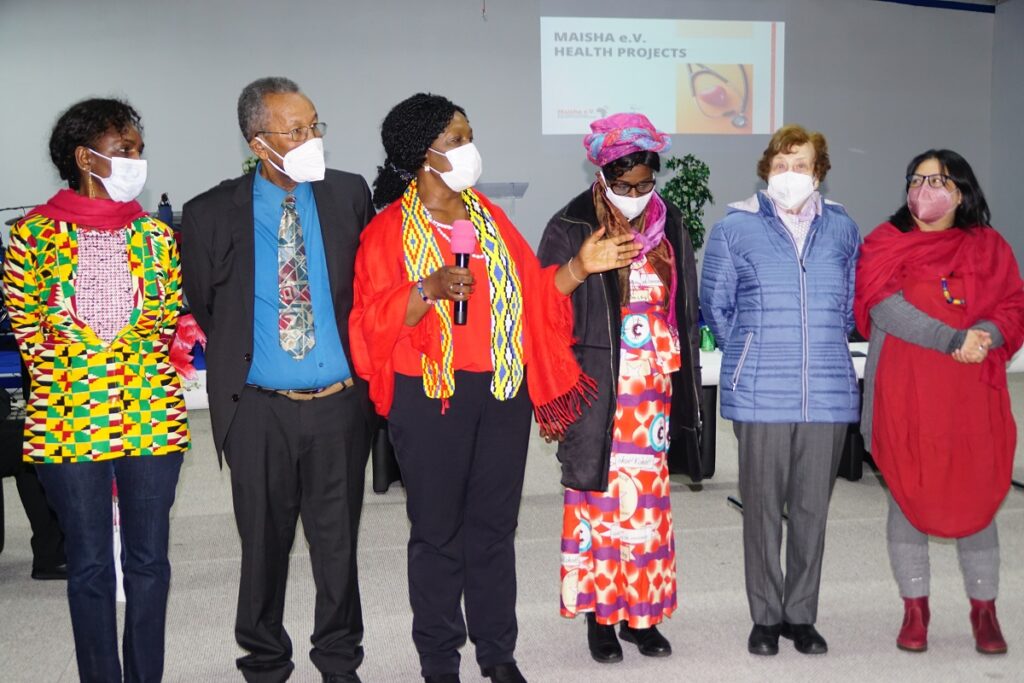Maisha – African Women in Germany e.V. recently celebrated 25 years of its existence in Frankfurt.
Maisha, which means “life” in Swahili, is a self-help organisation of African women in Germany founded in 1996 by Virginia Wangare Greiner.
The occasion, attended by members as well as friends and partners of the organisation, was a milestone for self-organisation in the African community in Germany as Maisha is one of the very first groups founded by Africans to empower themselves.

Speaking at the event, Ms Greiner, who is the Executive Director of Maisha, traced the history of the group.
In 1996, she had invited a group of women to her home to discuss how to support each other and engage the state to promote the integration of African women and girls.
Maisha was founded the same year by mostly East African women who sought to address the needs of their families in German society in the fields of health, education, integration and employment.
Maisha has meanwhile become inclusive of all groups in the African community in Frankfurt and Germany.
Since its founding, Maisha, which enjoys good working relations with German federal and state ministries as well as with the Frankfurt municipal administration, has initiated and implemented many projects and initiatives to support African women and girls both in Germany and Africa.

Ms Greiner said it had been a quarter of a century journey filled with planning, hard work, tough choices and unforgettable moments, which has seen various organisations and institutions partner with Maisha.
In co-operation with the health department of the city of Frankfurt, the organisation has been offering health advice to Africans since 2004 at its Maisha Beratungsstelle (Maisha Advisory Centre) in the financial city.
The centre also assists African families on other problems usually faced by immigrants, such as residence permit troubles and dealing with authorities generally, difficulties encountered by children in kindergartens and schools, as well as issues of discrimination.
Maisha has also been prominently involved in various projects to raise awareness on the harmful effects of female circumcision and to support victims of forced prostitution in the African community.
In 2019, the organisation launched the Maisha Business Women in Europe (MBWE) scheme to offer women with refugee experience the opportunity to develop their entrepreneurial ideas and market their products and services.

Another of the organisation’s initiatives, Maisha Akwaaba Project (MAP), launched two years ago with the support of Germany’s Foreign Ministry, raises awareness of the dangers of irregular migration in Ghana.
Ms Greiner was one of the immigrants chosen by the German government to participate in the first Integration Conference called by Chancellor Angela Merkel in July 2006.
She served on the committee set up by the conference to recommend measures to promote the integration of foreigners in the country.
The Maisha founder was also one of the six Africans invited by then German President Horst Koehler in August of the same year to parley with him on his ‘Partnership with Africa’ initiative.
In June 2006, Dr Koehler awarded Ms Greiner the Federal Medal for her efforts for the integration of African immigrants in the country. It was the first time a person of African origin received the German national honour.
Ms Greiner said more of such organisation as Maisha are needed to avert some of the irreversible mistakes made unknowingly by African migrants in Germany, especially at the beginning of their sojourn in the country.
Due to the diverse nature of the African continent and its migrants, she called for more public funding of integration measures targeted at Africans.
She also advised African organisations still struggling for recognition not to give up but be open and outspoken and focused.
Maisha has become the leading light of the organised African civil society in Germany and one can only wish the organisation to continue to grow from strength to strength.
Larry Bello
More about Maisha e.V. at https://en.maisha.org/
 THE AFRICAN COURIER. Reporting Africa and its Diaspora! The African Courier is an international magazine published in Germany to report on Africa and the Diaspora African experience. The first issue of the bimonthly magazine appeared on the newsstands on 15 February 1998. The African Courier is a communication forum for European-African political, economic and cultural exchanges, and a voice for Africa in Europe.
THE AFRICAN COURIER. Reporting Africa and its Diaspora! The African Courier is an international magazine published in Germany to report on Africa and the Diaspora African experience. The first issue of the bimonthly magazine appeared on the newsstands on 15 February 1998. The African Courier is a communication forum for European-African political, economic and cultural exchanges, and a voice for Africa in Europe.

































